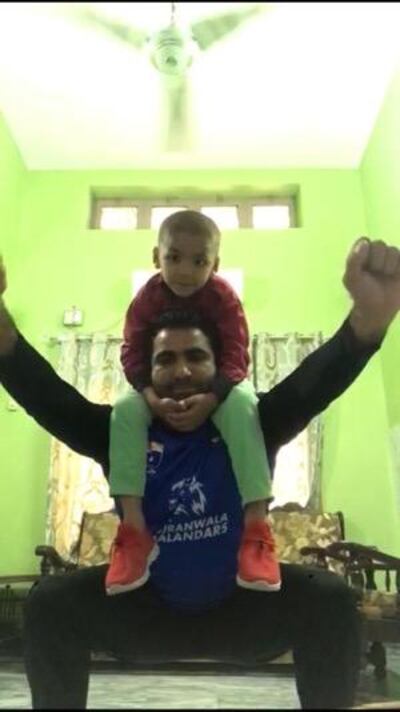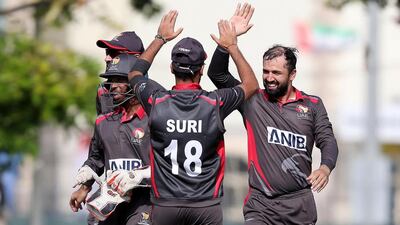Precisely when they will play their next fixture is anyone’s guess, but the cricketers of the UAE can at least look forward to a return to the playing field soon.
The announcement that Dubai's gyms will re-open on Wednesday, alongside a general move to ease some of the restrictions in the city, has brought a sense of optimism.
The International Cricket Council have issued a document to member countries which has been created by its medical advisory committee and details guidelines for a safe return to cricket.
Any resumption will depend on government advice, but at least the players will be able to sense an end to their cabin fever.
They have had to be resourceful in recent weeks while juggling the twin challenges of lockdown and, for many of them, fasting.
According to Peter Kelly, UAE cricket’s performance manager and strength and conditioning expert, they have coped admirably.
“A big part of it has been making sure the guys are keeping interactive with each other,” Kelly said.
“It has not just been about the fitness side, but also the mental side. I have been setting challenges for the guys, they have programmes, plus Zoom sessions for three times per week.
“We continued that during Ramadan, albeit less interactively, because some players struggled to train before iftar, and I would struggle to do it after as the kids [Kelly has a young family] are in bed.
“But the guys have been training really hard and there has been good morale.”
Kelly has long been used to adapting, having been an elite-level rugby player before his fitness expertise took him to cricket.
As such, he was adept at thinking up unconventional methods to cope with lockdown – although he says the players created many ideas.
One was Sultan Ahmed, the left-arm spin bowler, who conducted one of their online training sessions – specifically squats – with his four-year-old son Abubakar on his shoulders.
“I hadn’t told them to do that, but in our online discussions I’d mentioned this was a way that could help make it more difficult for ourselves,” Kelly said.
“Another way would be to add instability, so doing an exercise on one leg rather than two straight away increases the difficulty of an exercise. They came up with some really creative stuff.
“Remembering that some of them were confined to shared rooms or apartment-style accommodation, without the ability to get into a backyard, you have to adapt as well as you can," Kelly said.
“They came up with some ingenious high-intensity sessions.”
Kelly’s own suggestions during lockdown included weight training using a full, five-gallon water bottle.
“In terms of physical capability, you don’t want to lose muscle strength or mass, or put on weight," he said.
“I try to think outside the box. How can we influence those physiological stresses by utilising different forms of resistance?

“Body weight is a resistance in itself. If you are doing a press-up, you are working your chest area.
“A five gallon bottle of water weighs approximately 19 kilos, so that is also a nice big weight that could be used.”
Having been with the side since before the trip to the 2015 World Cup, Kelly has been used to dealing with the challenges faced by training during Ramadan.
This holy month was one with a difference, given the restrictions on the players’ movements because of the pandemic.
The UAE had been scheduled to play a series in Papua New Guinea (PNG) this summer.
That was cancelled because of the coronavirus, and Kelly said that had an effect on the training programme, too.
“Ramadan brings some unique challenges, and from year to year we have handled it differently at different times,” Kelly said.
“It is hugely dependent on what comes up afterwards. For example, if the PNG series had gone ahead, we would be preparing for that series through Ramadan both from a fitness and skills perspective, so that we were ready to go.
“In other years, when Ramadan has fallen later in the year and there has been nothing following it, we might have had more of a regeneration phase where we would still train, but give them more time off.
“In terms of increasing weight, at times that can happen, but it depends on the individual.
“It is dependent on energy in, energy out. There is a stress on the body, and I take my hat off to anybody who fast for that amount of time.
“They have to get that sustenance in, and that is often in large portions and at varying times.
“For the past few years, Ramadan has been right in the middle of summer. It is important to get enough hydration in after iftar and before suhoor.”


